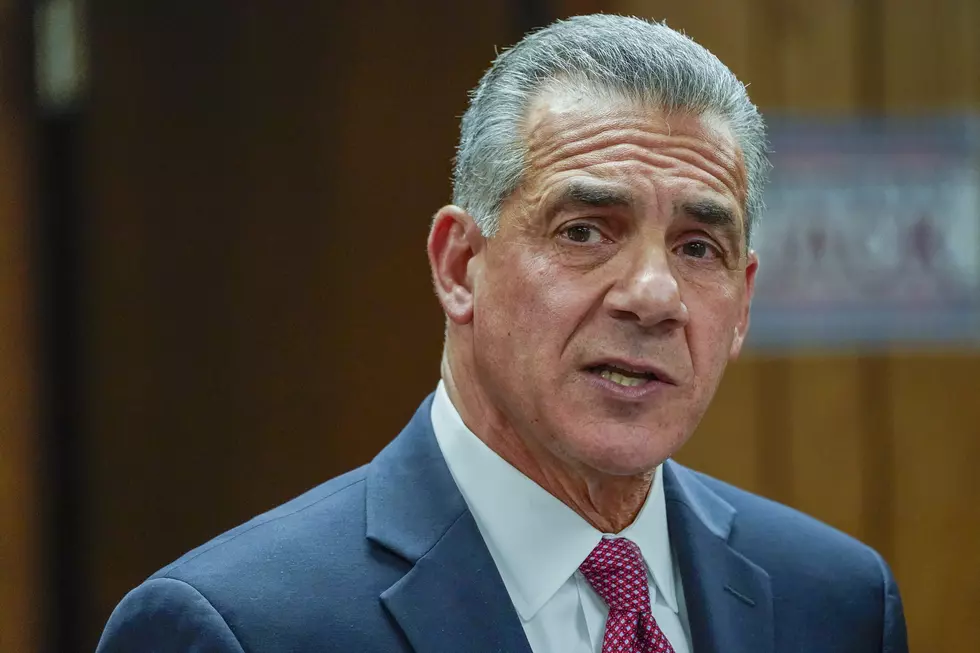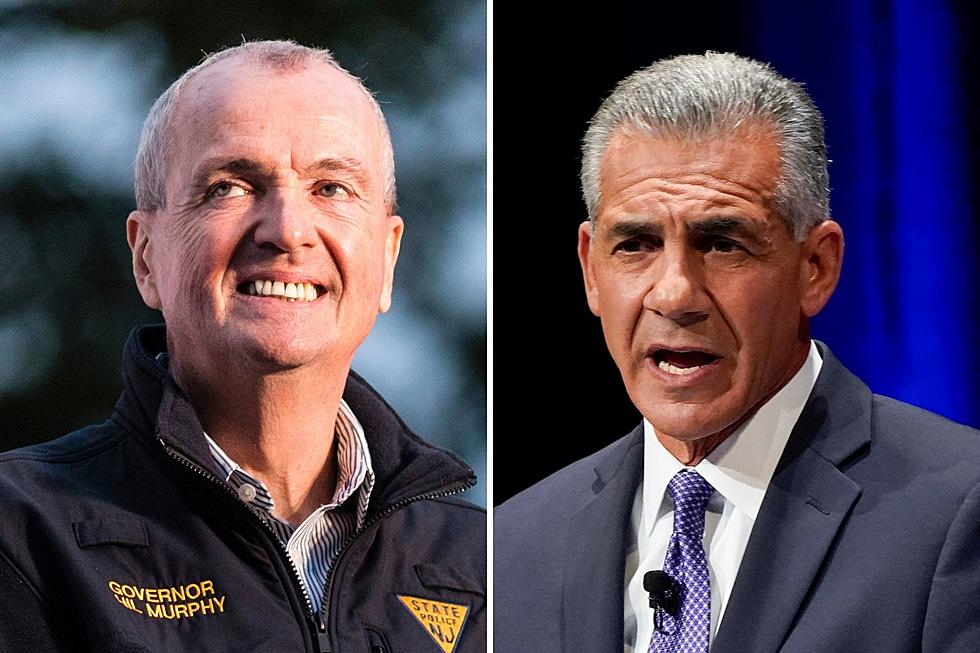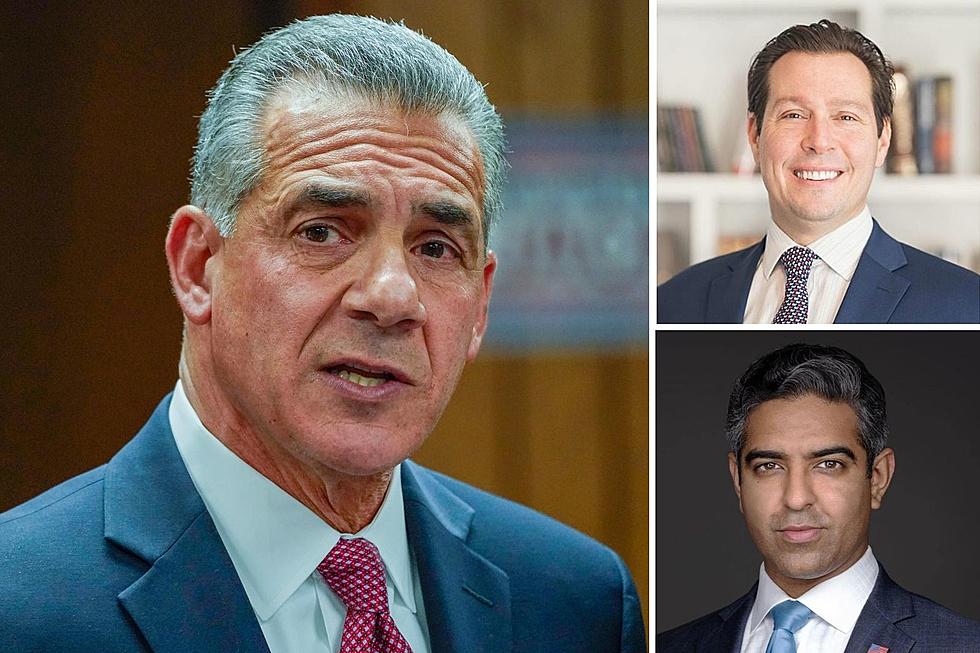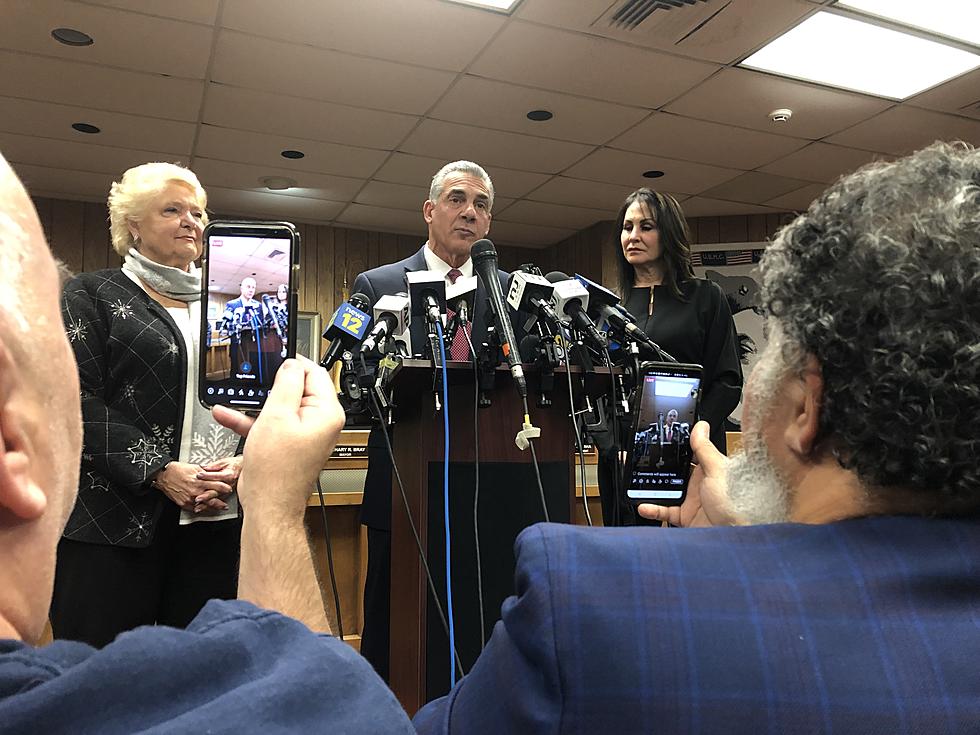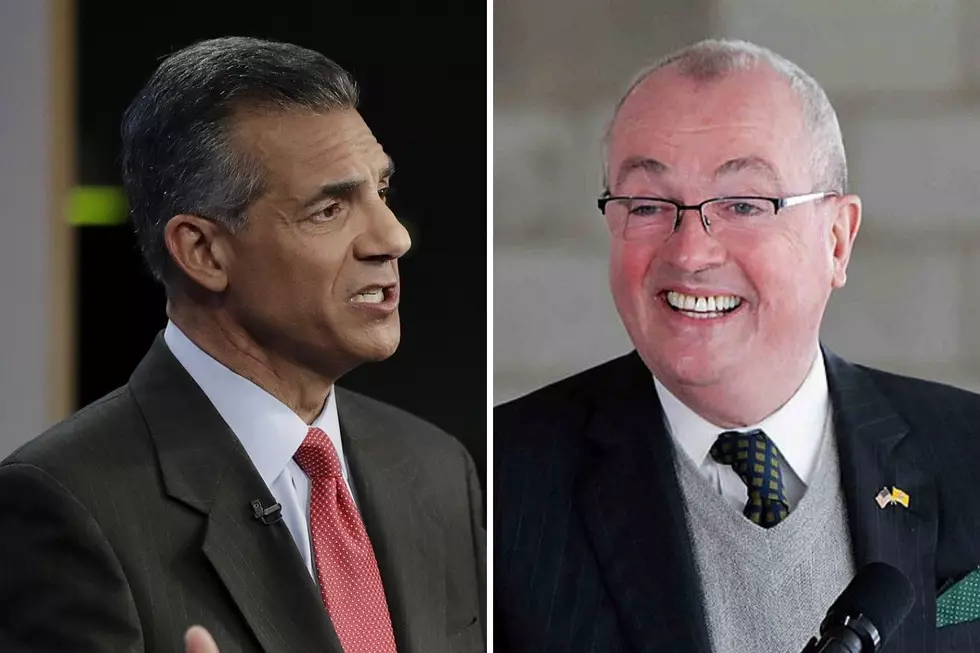
GOP fighting odds, Dems battling history in NJ governor’s race
TRENTON – Republicans have nominated Jack Ciattarelli, a former Somerset County assemblyman, as their candidate to take on Gov. Phil Murphy in a November election in which Democrats aim to end a series of unfavorable historical election trends.
Murphy is seeking to become the first Democrat to win re-election in New Jersey since Gov. Brendan Byrne in 1977. Since then, two Democrats – Jim Florio and Jon Corzine – lost bids for second terms, and Jim McGreevey resigned partway through his third year in office.
Also, voters in New Jersey haven’t elected a governor from the same party as the incumbent president since 1985, when Gov. Tom Kean won re-election a year after President Ronald Reagan did the same.
That’s eight straight election cycles in which the state zigged after the nation zagged, in off-year races that are sometimes interpreted as a first judgment of the party controlling the White House.

Ciattarelli got nearly half the vote in a four-way race Tuesday that included engineer Hirsh Singh and developer-turned-pastor Philip Rizzo, who competed for the affections of former President Donald Trump’s backers, and former Somerset County Freeholder Brian Levine. Singh and Rizzo challenged Ciattarelli from the right but battled for many of the same voters.
Campaign finance race
Campaign-finance reports and ELEC records show Ciattarelli had nearly $7 million in receipts for the primary race, including nearly $2.5 million in contributions and $4.5 million in $2-for-$1 matching funds the state provides to gubernatorial candidates who raise enough money to qualify.
Ciattarelli received nearly the maximum $4.6 million in matching funds for the primary and will likely still get there. None of the other three candidates qualified, though Singh made a big enough personal loan to his campaign to qualify for two debates – then boycotted one of them, unhappy with COVID-safety rules required by the debate sponsor, NJ PBS.
Rizzo raised $624,000. Singh raised $586,000, including $437,000 in personal loans. Levine raised and spent less than $5,800, the minimum required for filing detailed campaign reports.
Uniting Republicans in NJ
“As the nominee, my job is to unify the party,” Ciattarelli said in an interview. “And there’s one thing that all 1.4 million Republicans agree on – and that’s not easy to accomplish, but there is one thing we all agree on. And that’s that Phil Murphy shouldn’t have a second term.”
Ciattarelli said “there is a stark difference” between him and Murphy – from their personal backgrounds, with Ciattarelli born, raised and educated in New Jersey and Murphy from Massachusetts, to their professional backgrounds, with Ciattarelli founding medical publishing companies and Murphy as a retired Goldman Sachs executive, to their political philosophies, with Ciattarelli calling himself a “common-sense conservative” and Murphy an unapologetic progressive.
Ciattarelli said it’s not clear what Murphy’s goals are for a second term.
“He hasn’t told us what he’s going to do, but I can tell you what he’s not going to do. He’s not going to address the property tax crisis. He’s not going to address the business climate crisis. And he’s not going to address the public pension crisis. Nor is he going to address the way we do affordable housing in this state, which is different from the other 49,” he said. “He’s never talked about those issues because it’s hard and he doesn’t want to do hard. Instead, he goes around the state waving a victory flag because we’ve given voting rights to parolees and driver’s licenses to illegal immigrants.”
Murphy's pitch for a 2nd term
Murphy won renomination easily, as the only candidate on the Democratic ballot.
Murphy’s campaign website includes 14 topics on its “On the Issues” section, each containing summaries of Murphy’s first-term record on the subject or legislative or budget proposals that have already been made. No new campaign promises are included.
“We have done so much together in the last 40 months in office,” Murphy said at a Union City campaign rally highlighted by his campaign. “We’ve addressed enormous inequities. We’ve grown our state. We got tax fairness in place. We’ve defended women’s healthcare. Our work is not done. We are on a journey, and we need four more years.”
Murphy said he wants to build on the progress of the past four years.
“As we look to New Jersey’s future, one thing is certain: We cannot go back to the failed ways of the past,” Murphy said. “Our state needs principled leadership with forward-looking solutions to tackle our toughest challenges.”
Murphy's approval ratings
Murphy enters the general election season with a major advantage. The latest Rutgers-Eagleton Poll finds that in a hypothetical head-to-head matchup, 52% of registered voters would vote for Murphy and 26% for Ciattarelli. Murphy was ahead by 10 points among self-identified independents.
“New Jersey has seen some uncompetitive gubernatorial races the past couple of cycles, and this race does not seem to be the exception right now,” said Ashley Koning, director of the Eagleton Center for Public Interest Polling at Rutgers University. “Murphy currently has a stronger lock on his base than Ciattarelli and beats him among independents right now by a double-digit lead.”
A Monmouth University poll conducted a month ago found Murphy with a 57% job approval rating. Forty-eight percent of voters said he should be re-elected, while 43% felt it was time to have someone else in office. In the Eagleton Poll, Murphy’s advantage in that generic question was 11 points.
Rowan University political scientist Ben Dworkin said given Murphy's standing in the polls and the Democrats' voter registration advantage, the incumbent has the edge.
"Jack Ciattarelli could absolutely win. But the Democrats have to screw things up, or there has to be some outside event that messes up the current situation," Dworkin said.
“Fact is, Phil Murphy has unified the Democrats. He has the ability to use his own significant resources. He has a record of some pretty popular things, such as college affordability, raising the minimum wage and imposing the millionaires tax," Dworkin said.
Republicans have won six of the last 10 gubernatorial elections in New Jersey – though four of those were before 2000, and the state has been trending Democratic overall. Democrats have won three of the last five governor’s races and hold 64% of the seats in the state Legislature.
“It’s a highly partisan atmosphere out there in the electorate these days, and I think it’s going to matter to a lot of people whether you have a D or an R next to your name," Dworkin said.
Gov. Chris Christie is the only Republican to win statewide in 24 years – for governor, U.S. Senate or president. Christie’s re-election in 2013 and Gov. Tom Kean’s re-election in 1985 mark the only two times a Republican has gotten over 50% of the vote in a statewide race in New Jersey since 1972.

Three minor-party gubernatorial candidates also filed petitions to be on the November ballot by Tuesday’s deadline: Madelyn Hoffman of the Green Party, Joanne Kuniasky of the Socialist Workers Party and Gregg Mele of the Libertarian Party.
Three other independents had filed paperwork with the Election Law Enforcement Commission to establish their candidacies, but the Division of Elections hadn’t reported getting their nominating petitions. They are Justin Maldonado, Mohammad Kabir and David Winkler.
Strange NJ Laws You've Never Heard Of
More From Beach Radio

